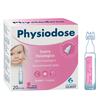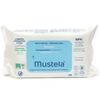
Nutrition in pregnancy
During the first three months, quality is more important than the amount of ingested food. It will be not necessary an intake of higher calories as long as the power is balanced and varied; mum must do six meals per day in order to make regular intervals (no longer than three hours without food) and must eat in small amounts. A pregnant woman should not increase more than 1 to 1.5 Kg per month.
Here are some food standards recommendations throughout pregnancy:
- Balanced diet
- Light and fresh food, (without dyes or preservatives)
- Cook simply, (favoring boiled or grilled), do not abuse on condiments or salt
- Daily fiber intake (> 30 g daily)
- Milk (0.5L - 1l day) yogurt cheese (except cottage cheese)
- Fruits and vegetables - preferably fresh and well washed
- Legumes (peas and beans), eat two to three times per week
- Eat two to three eggs a week
- Well done meat and fish ingest daily
- Pasta, rice, drink as much water as you can daily
- Prefer whole grains
- Water ingesting 1.5 to 2 liters per day
Foods to Avoid
- Canned
- Sausages
- Shellfish
- Salted meats
- Fried
- Food ready to eat (fast food)
- Salt (in excess)
- Fats
- Sauces
- Simple sugars (honey, chocolates, ice cream, canned fruits, ...)
- Nuts (almonds, walnuts)
- Alcohol
- Tea with caffeine
- Coffee
- Soft drinks
- Carbonated drinks
Hygiene
Preferably, a daily bath shower (the immersion bath is contraindicated, especially from 37-38 week)
Careful and regular genital hygiene (avoid intimate perfumes and deodorants), banned vaginal douches



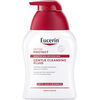
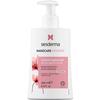
Dental hygiene
Dental hygiene surveillance
Nausea and vomiting often lead to poor oral hygiene. However oral hygiene should be more careful than ever because the hormonal conditions of pregnancy favor the tooth decay and gum problems. The gums become spongy and tend to bleed easily (gingivitis).
To maintain good dental hygiene:
- Consulting the dentist at least once during pregnancy
- Daily oral hygiene with the use of a soft brush
- Flossing should be encouraged
- Daily amount of 1.2 grams of calcium and phosphorus
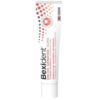
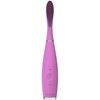
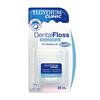


Clothing
- Practical comfortable and wide
- Own bras for pregnancy
- waist brace
- stockings
- The use of bras and tight belts, socks up to the knee joint braces, garters, and all kinds of tight clothing, it is not recommended
- The use of clothes that much tighten the perineal region may favor the onset of vaginitis and erythema due to the heat. The commitment of the venous circulation in the lower limbs, predispose to the appearance of varicose veins
- Comfortable shoes with stability - low without being shallow; since the high-heeled shoes or completely shallow, are not indicated due to the change the center of gravity of woman
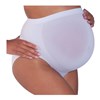


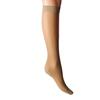
Pregnancy Problems
Women should be advised to the eventual appearance of these signs and symptoms in order to understand their state of health.
- Breast - increase in size and consistency and sometimes become painful
- Nausea and vomiting - appear more frequently in the first quarter of the pregnancy. Usually in the morning but can occur in any other time of the day. It is advisable to pregnant woman to eat some bread or a biscuit without sugar and wait 10 minutes before getting up. If vomiting become persistent and there is a significant weight reduction it is very important to go to the to the hospital in order to control the vomiting. The appearance of nausea and vomiting is common in early pregnancy.
- Women often at this stage relate fatigue.
- Itching - hormonal cause, appear most often in the breasts and abdomen and can be generalized. If the skin is dry, you should use a good cream or lotion.
- Stretch marks - may appear on the abdomen, the breasts and thighs, as a result of the relaxation of the elastic fibers of the skin, associated with pregnancy. They are initially red, then become pearlescent. There is no effective treatment, however it is advisable to use a fat cream, just in order to mitigate its appearance
- Varicose veins - are caused by increased venous pressure and by the action of the hormones of pregnancy on the walls of blood vessels as well as by the pressure of the uterus on the large vessels supplying the legs. As a consequence, an edema can appear on the feet or ankles. The pregnant should avoid being many hours on a stand up position or paralyzed, when she is relaxing, the legs must be up, do not sit in a cross-legged position, do not wear Knee socks, wear elastic stockings in case you already have varicose veins.
- Frequent urination and urinary urgency - in the first months is common due to the pressure that the uterus exerts on your bladder. This relieves during the second quarter and recovery in the third quarter for the same reason, and there may be insignificant loss of urine without the pregnant perception. Pelvic floor exercises may be done, for toning the muscles surrounding the vagina.
- Secretions vaginal discharge - during pregnancy is common the appearance of an off-white vaginal discharge, with no smell associated with hormonal changes
- Hemorrhoids - varicose veins in the rectum and anus become more apparent and can even bleed when the pregnant evacuated. They may be internal or external. They can also result from constipation and inadequate diet, it is recommended to pregnant woman to drink plenty of fluids and eat high-fiber foods to avoid constipation. They can put on an ice pack if they are externalized.
Alcohol and tobacco
Alcohol crosses the placenta and enters the baby's blood, which can have a very detrimental effect.
It is strongly advised abstinence FULL ALCOHOL INTAKE.
There is no known safe threshold for alcohol consumption during pregnancy, however it is known that the more a pregnant drink, the greater the risk to the baby.
Maternal alcohol abuse is associated with:
- Miscarriage
- Malformations
- Fetal alcohol syndrome
- Tobacco may be harmful to the baby, before, during and after delivery. Smoking involves the transportation of carbon monoxide and nicotine existing in blood for the baby, in addition to reducing the supply of oxygen and nutrients.
- The use of tobacco or continuous exposure to saturated tobacco smoke environments, there is associated:
- Fetal growth retardation
- Increased risk of morbidity and perinatal and infant mortality
- Premature birth
- Placenta previa
- Predisposition to sudden death
- It is advisable to pregnant not to smoke, but if you can not leave should reduce the number of cigarettes a day.
Self-medication and radiography
Some medicines can cause birth defects or other problems, especially when taken during the first months of pregnancy. So pregnant should not take any medication without medical advice.
However it is important to assess whether pregnant taking some kind of medication, if it does you need to know what and for what, as there are cases where the lack of medication can have more serious consequences than the risks that eating represents.
Warning: DO IF YOU HAVE A NEED RADIOGRAPH MUST NOTIFY THE TECHNICAL WHAT IS PREGNANT
Urinary infection
The urinary tract infections are common during pregnancy, often detected through combour test.
Whether asymptomatic or not, pose a risk to the mother and the fetus, so the prevention of these is essential:
- Drink plenty of fluids
- Careful personal hygiene
- Empty the bladder whenever necessary
- Clothing comfortable interior (avoid fibers)
- Do not use antiseptics, deodorants, talc or perfume in the vaginal area
- After urination or bowel movement, clean themselves always facing backwards
- Wash always with water after having sex
Infectious diseases
Infectious diseases when associated with pregnancy negatively influence the reproductive function. Maternal infection (bacteria, viruses or protozoa) has a huge potential in fetal involvement and can be a cause of miscarriage, stillbirth, birth imperfections, late intrauterine growth, premature rupture of membranes, preterm delivery and neonatal infection. To prevent possible pregnancy complications, based on a systematic approach, take into account:
The determination of immunity to rubella and vaccination status, if it is not immune, the pregnant should avoid contact with schoolchildren, mainly in the period for the spread of rubella;
The control through periodic analyzes should be compared to the immune status of toxoplasmosis in pregnant woman.
It is advised to
- be far away of cat excrements because they may contain protozoa eggs
- they must eat well-done meat
- they must wash the salad and let them dipped in water with three drops of bleach and rinse with plenty of running water and only after that can be consumed
- they should opt for vegetable soups, the sausages
- must be avoid as well as undercooked meat
- do not eat strawberries
- wash the potatoes and carrots before the shelling.
The screening of syphilis and HIV I and II,
The determination of hepatitis B carrier state,
A tetanus vaccination according to the national vaccination plan, however they can only be vaccinated after 18 weeks of gestation,
To treat any genital infections, such as Candida albicans and gonorrhea.
Sexuality
As for sexuality during the pregnancy though the libido is decreased in the first quarter (due to hormonal changes, if you have many sick or are sick), it will increase in the second quarter; could again reduce the
third quarter, due to the volume of the stomach that often makes sex uncomfortable. Sexual relations are safe as long as there is not any medical reason to require restrict them. They are allowed until 37-38 weeks.
Avoid sex when:
- Threatened abortion
- History of premature births
- If the mother has an infection (urinary or vaginal)
- Colo permeable
- Premature rupture of membranes or any amniotic fluid losses
- Bleeding vaginally
- Infertility
Exercise and Rest
The pregnant can practice exercise, it is considered benefic for most women. It is good for blood circulation, it make her feel and look better, it strengths muscles and help fight some common problems during pregnancy, such as constipation and fatigue. In addition, exercise also relieves tension, both physically and emotionally, helping her to relax.
Pregnancy is not the best time to start a sport, but in case you already practice some, within reasonable limits, continue to do so. Yet it is important to note that the practice of activities that lead to fatigue and exhaustion, compromise uterine perfusion and fetal-placental oxygenation.
The key to the successful practice of exercise during pregnancy is to use common sense and pay attention to the body, causing periods of rest whenever you need it. It is convenient to consult a physician assistant in relation to the practice of sports.
Forbidden sports
- Aerobics - can cause spinal problems
- Tennis, Basketball, Athletics, Volleyball - require very violent efforts and can cause contractions before time
- Skating, skiing, riding and mountaineering - in addition to the risks mentioned above, have increased risk of falls
- Contact sports - can cause abdominal trauma
- Scuba diving - can be fatal to the fetus
Allowed sports
- Cycling - since slowly and on level ground
- Walk the walk
- Swimming - avoid too cold water and suspend over the last two months of pregnancy
- Yoga
- Gymnastics - since it does not require excessive effort, with simple movements
The pregnant should plan regular rest periods, especially as the pregnancy progresses. The side lying position is recommended, as promote a greater flow of blood to the uterus and the fetal-placental oxygenation.
It is advisable to pregnant to do a night rest period 8-10 hours a night, the work should be done in moderation, avoiding fatigue, physical exercise is healthy but should be appropriate for gestational age, walking is a good exercise.
Signal potential complications
- The pregnant should be alert to signs and symptoms that indicate a potential complication of pregnanc, namely:
- Abdominal or back pain, severe headache
- Uncontrollable vomiting
- Bleeding
- Urinary disorders: decreased volume of urine, painful urination, urinary frequency or loss of blood in the urine
- Loss of appetite, fainting, severe tiredness
- Weight loss or excessive weight increase (9-12 kg pregnancy)
- Marked edema of the lower limbs, hands and face or
- Fever
- Vaginal secretion
- Decrease or absence of fetal active movements (10x day in late pregnancy) - 1h in the left lateral position - count fetal movements.

Discomfort pregnancy
- Heartburn or heartburn - may come in the second or third trimester of pregnancy due to the pressure that the enlarged uterus volume has on the stomach, pushing it up. The increase in progesterone leads to the decrease of the tonus of smooth muscle motility, and, which may occur gastro-oesophageal reflux, increased gastric emptying time. It is advisable to pregnant to:
- Avoiding foods that cause heartburn
- Eating 2 in 2 hours
- Make light meals
- Avoid fried or fatty foods
- Take cold or warm milk
- Slightly raise the headboard
- Constipation - usually the second and third trimester of pregnancy, due to the decrease in bowel movements, caused by hormonal changes and also will pressure of the dilated on the lower part of the intestine. The increase in progesterone values (which determines the loss of muscle tone and decreased bowel movements). It produces increased water absorption in the colon and constipation may occur. It can also occur by poor diet and decreased fluid intake.
It is advisable to pregnant to:
Eat foods high in fiber (bran, raw fruit and vegetables)
Drink plenty of water
Back pain - are frequent in the 2nd and 3rd trimester of pregnancy. Usually caused by pressure on the back muscles by increasing the volume of the uterus and relaxation of the pelvic joints. It can also be caused by postural changes required by physical imbalance caused by the baby's size increases.
Safety during pregnancy
Maternal adaptation to pregnancy includes relaxation of the joints, the center of gravity changes, shortness of forces and discomfort. Related problems with balance and coordination are common. The development of the embryo and fetus is sensitive to teratogenic environmental elements.
There are many potentially dangerous products at home, in courtyards, and the workplace:
- cleaning products
- paints
- aerosols
- herbicides and pesticides
Preparation for breastfeeding
Breast milk is the food of choice, and breastfeeding is associated with a decrease in the rates of morbidity incidences and perinatal mortality.
- The following are the advantages of breastfeeding:
- Strengthens affective mother / child bonds
- Very practical, is always ready
- It is easy to digest
- Increases the baby's defenses, reducing the number of infections
- Protects against allergies
- It facilitates involution of uterus and the recovery of the body silhouette
- The contraindications to breastfeeding are rare. Are due mainly to the mother's health or the medications you are taking. In these cases, the doctor will inform and advise the mother.
Alarm signals
- Some signs and symptoms require a more thorough evaluation, we highlight:
- Fever
- Edema
- HTA
- Intense headache
- Visual disturbances
- Spinning sensation
- Albuminuria (albumin in the urine)
- Glycosuria (glucose in urine)
- Excessive weight gain
- Uncontrollable vomiting
- Blood loss
- Urinary complaints
- Persistent abdominal pain and strong
- Membrane disruption (loss of amniotic fluid - take into account the characteristics of the liquid
- regular contractions, with about 10 minutes.
Birth planning
"Women who have birth in hospitals, assisted by anesthesiologists obstetric for 24 hours has the opportunity to hear about the positive aspects of epidural analgesia: trust in pain relief, minimal risk of serious problems, effect without consequences in labor, and overall, a more pleasant birth experience. "Quoted by Goldberg. A. et. al. (2001, p. 254)
The birth planning is a natural evolution of contemporary lifestyle oriented welfare. The nurse could address the issue of birth planning during the first and second prenatal appointments in this way it gives the couple time and opportunity to reflect on the subject.
Suitcase for motherhood
For Mother
- Two nightgowns open in front (for breastfeeding)
- A robe
- Two nursing bras
- A pack of disposable underpants
- A pair of slippers
- A package of disks
- A package of sanitary napkins night
- Objects of personal hygiene (brush or comb hair, brush folder and oral hygiene ...)
- Bath towel
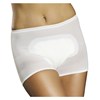

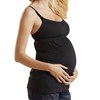
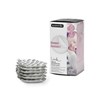
For Newborn
- It takes four changes of clothing, comprising:
- Chambre or diaper
- Inner liner
- Pants with foot or pants + socks
- Babygrow
- Coat
- Carapins
- A disposable diaper
- A diaper fabric
- Wipes
- Disposable diapers for newborn
- A packing tampons
- A saline bottle
- A container of alcohol 70%
- A packing body moisturizer / body oil
- An anatomical pacifier (for newborn)
- A brush or comb
- A blanket

